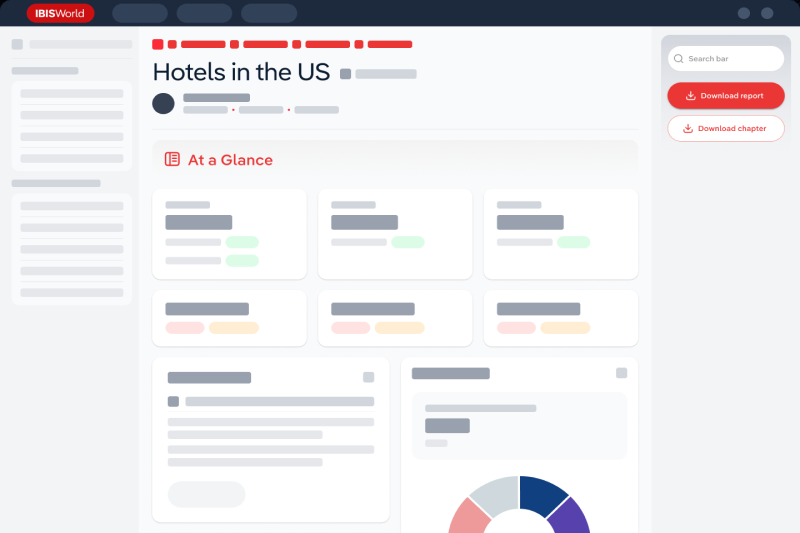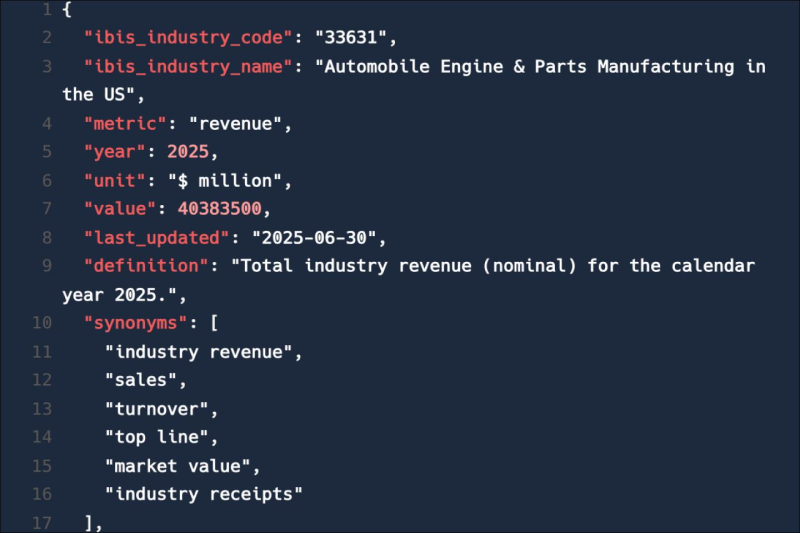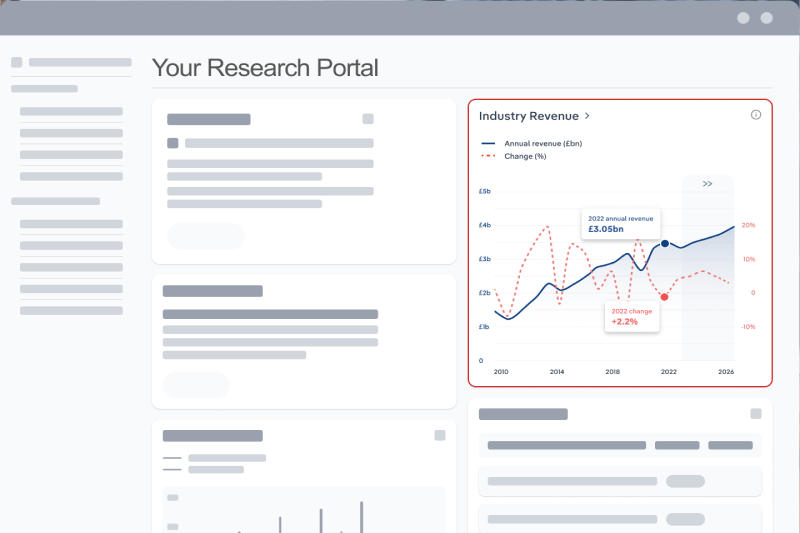IBISWorld Platform
Answer any industry question in minutes with our entire database at your fingertips.

The petroleum refining industry in France has experienced notable fluctuations in recent years, largely influenced by external factors such as global oil prices and government intervention. In 2022, refinery revenues surged as global oil prices skyrocketed, driven by sanctions on Russian energy exports and coordinated production cuts by OPEC+. This upward price momentum saw refineries benefitting from higher selling prices for petroleum products, even as pressures mounted from rising competition with renewable energy sources. The industry managed to sustain elevated revenue levels through 2024 amid a backdrop of extended production restrictions by oil cartels, despite a stabilisation in prices compared to peak levels observed in 2022. Over the five years through 2025, industry revenue is projected to climb at a compound annual rate of 10.5%, reaching €48.7 billion in 2025 despite an estimated 2.4% dip in revenue in the final year. A shift away from diesel vehicles, which were once favoured thanks to government subsidies and their lower CO2 emissions, has reorientated the market. This decline was precipitated by concerns over harmful NOx emissions and the resulting policy change that saw new diesel car registrations in France falling from over 60% of the total to just 10% within 10 years, according to Eurostat. Consequently, refiners have had to adapt their production processes to meet the rising demand for petrol and electric vehicles. Alongside these challenges, the broader push towards renewable energy utilisation has meant a reduction in the share of oil and petroleum products in France’s energy mix, further pressuring the industry to diversify its focus and innovate.With the EU setting stringent targets for zero-emission vehicle sales by 2035, the long-term viability of petroleum-based refineries hinges on their ability to pivot towards cleaner alternatives. The necessity for substantial investment in biofuel research and development is paramount, especially as France ramps up its biofuel blending targets to comply with EU mandates. Petroleum refining companies are also increasingly diversifying their operations and embracing renewable energy. Industry revenue is projected to swell at a compound annual rate of 2.3% over the five years through 2030, reaching €54.4 billion.

Answer any industry question in minutes with our entire database at your fingertips.

Feed trusted, human-driven industry intelligence straight into your platform.

Streamline your workflow with IBISWorld’s intelligence built into your toolkit.
IBISWorld's research coverage on the Petroleum Refining industry in France includes market sizing, forecasting, data and analysis from 2015-2030. The most recent publication was released October 2025.
The Petroleum Refining industry in France operates under the industry code FR-C192. Petroleum refining is the process of turning crude oil into more usable products such as petrol. The major oil refineries manufacture petrol, diesel, jet fuel, gas oil and petroleum gas. The refining process also leads to the production of byproducts such as naphtha, which can be used as a solvent. Companies in this industry also manufacture a range of petroleum-based products such as petroleum jelly, paraffin wax and white spirit. Related terms covered in the Petroleum Refining industry in France include distillation , decarbonising and liquified petroleum gas.
Products and services covered in Petroleum Refining industry in France include Petrol, Diesel and Jet fuel.
Companies covered in the Petroleum Refining industry in France include TotalEnergies SE, Repsol SA and BP plc.
The Performance chapter covers detailed analysis, datasets, detailed current performance, sources of volatility and an outlook with forecasts for the Petroleum Refining industry in France.
Questions answered in this chapter include what's driving current industry performance, what influences industry volatility, how do successful businesses overcome volatility, what's driving the industry outlook. This analysis is supported with data and statistics on industry revenues, costs, profits, businesses and employees.
The Products and Markets chapter covers detailed products and service segmentation and analysis of major markets for the for the Petroleum Refining industry in France.
Questions answered in this chapter include how are the industry's products and services performing, what are innovations in industry products and services, what products or services do successful businesses offer and what's influencing demand from the industry's markets. This includes data and statistics on industry revenues by product and service segmentation and major markets.
The Geographic Breakdown chapter covers detailed analysis and datasets on regional performance of the Petroleum Refining industry in France.
Questions answered in this chapter include where are industry businesses located and how do businesses use location to their advantage. This includes data and statistics on industry revenues by location.
The Competitive Forces chapter covers the concentration, barriers to entry and supplier and buyer profiles in the Petroleum Refining industry in France. This includes data and statistics on industry market share concentration, barriers to entry, substitute products and buyer & supplier power.
Questions answered in this chapter include what impacts the industry's market share concentration, how do successful businesses handle concentration, what challenges do potential industry entrants face, how can potential entrants overcome barriers to entry, what are substitutes for industry services, how do successful businesses compete with substitutes and what power do buyers and suppliers have over the industry and how do successful businesses manage buyer & supplier power.
The Companies chapter covers Key Takeaways, Market Share and Companies in the Petroleum Refining industry in France. This includes data and analysis on companies operating in the industry that hold a market share greater than 5%.
Questions answered in this chapter include what companies have a meaningful market share and how each company is performing.
The External Environment chapter covers Key Takeaways, External Drivers, Regulation & Policy and Assistance in the Petroleum Refining industry in France. This includes data and statistics on factors impacting industry revenue such as economic indicators, regulation, policy and assistance programs.
Questions answered in this chapter include what demographic and macroeconomic factors impact the industry, what regulations impact the industry, what assistance is available to this industry.
The Financial Benchmarks chapter covers Key Takeaways, Cost Structure, Financial Ratios, Valuation Multiples and Key Ratios in the Petroleum Refining industry in France. This includes financial data and statistics on industry performance including key cost inputs, profitability, key financial ratios and enterprise value multiples.
Questions answered in this chapter include what trends impact industry costs and how financial ratios have changed overtime.
The Industry Data chapter includes 10 years of historical data with 5 years of forecast data covering statistics like revenue, industry value add, establishments, enterprises, employment and wages in the Petroleum Refining industry in France.
More than 6,000 businesses use IBISWorld to shape local and global economies
We were able to supplement our reports with IBISWorld’s information from both a qualitative and quantitative standpoint. All of our reporting now features some level of IBISWorld integration.

IBISWorld delivers the crisp business knowledge we need to drive our business. Whether it be serving up our major clients, winning new business or educating on industry issues, IBISWorld brings real value.

IBISWorld has revolutionised business information — which has proved commercially invaluable to exporters, investors and public policy professionals in Australia and overseas.

When you’re able to speak to clients and be knowledgeable about what they do and the state that they operate in, they’re going to trust you a lot more.

The market size of the Petroleum Refining industry in France is €48.7bn in 2026.
There are 15 businesses in the Petroleum Refining industry in France, which has declined at a CAGR of 2.5 % between 2020 and 2025.
The market size of the Petroleum Refining industry in France has been growing at a CAGR of 10.5 % between 2020 and 2025.
Over the next five years, the Petroleum Refining industry in France is expected to grow.
The biggest companies operating in the Petroleum Refining industry in France are TotalEnergies SE, Repsol SA and BP plc
Petrol and Diesel are part of the Petroleum Refining industry in France.
The company holding the most market share in the Petroleum Refining industry in France is TotalEnergies SE.
The level of competition is moderate and decreasing in the Petroleum Refining industry in France.




